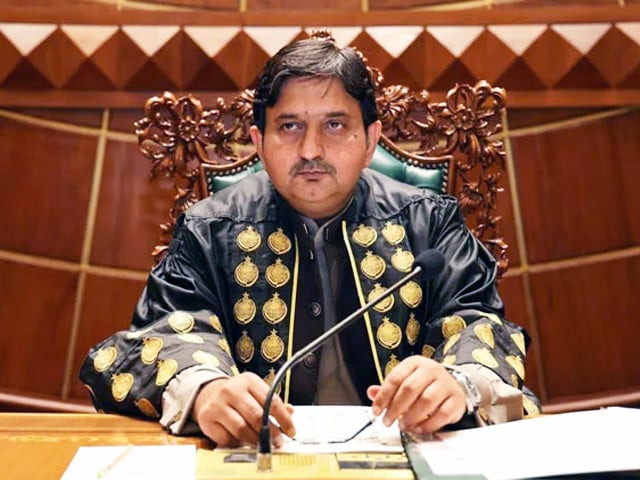The president of the Punjab assembly, Malik Muhammad Ahmad Khan, underlined Monday that the main function of the Parliament is to legislate, and not to protest, to defend his decision to file disqualification references against 26 opposition legislators.
Addressing a press conference on Monday, he referred to recent disruptions to the Assembly, declaring that the opposition had transformed the Chamber into a platform for protests rather than on a constructive debate.
He said that although he was not in favor of the expulsion of a member, he is in the constitutional right of the petitioners to decide their requests within 30 days, in accordance with articles 62 and 63 of the Constitution of Pakistan.
Read: The Punjab speaker moves to disqualify 26 MPa
Articles 62 and 63 of the Constitution refer to the qualifications required for members of the Assembly as well as reasons for disqualification.
Earlier, Khan had filed disqualification references to the ECP against 26 AMP of the opposition of the Sunni Ittehad Council (sic) to “denigrate the sacred character of the chamber”.
Addressing the media, Khan confirmed the development, declaring that those who violate the sacred character of the house will be confronted with the action.
He condemned the use of abusive language and violence in the assembly, describing it as an anti-democratic attitude. He also referred to article 63 of the Constitution, which describes the disqualification criteria, and stressed that the deputies take an oath to protect the Constitution.
Khan promised to continue fighting for the protection of the Constitution, declaring that the maintenance of order in the house is his duty.
He added that he had been patient for more than a year and had to justify his role as a speaker.
Khan stressed that if these applications are not resolved in the stipulated period, they will be automatically transmitted to the Pakistan Electoral Commission (ECP).
“Parliament is intended for legislation, and not to protest,” he said, criticizing the opposition members for continuous disturbances in the House. He added that if there is a disorder during the order of the day, the procedure will continue under the law.
The speaker also responded to the allegations of the opposition chief claiming that the speaker does not have the power to send a reference.
Khan referred to the judgment of the Panama’s documents by the Asif Judge Saeed Khosa, who establishes that if the members violate their oath, the speaker is obliged to make a decision or refer the case to the ECP.
Khan reiterated that “if a reference is received under article 63, paragraph 2, of the Constitution, it must be decided accordingly”.
He expressed his hope for a future dialogue between the government and the opposition to improve the atmosphere of the Assembly. He reaffirmed his commitment to maintain the sacred character of the Chamber and to ensure that the legislative processes are respected.




